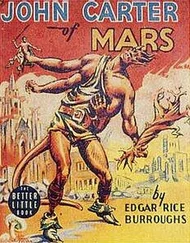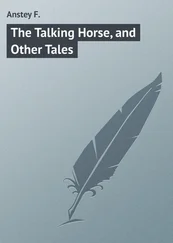F. Anstey - The Giant's Robe
Здесь есть возможность читать онлайн «F. Anstey - The Giant's Robe» — ознакомительный отрывок электронной книги совершенно бесплатно, а после прочтения отрывка купить полную версию. В некоторых случаях можно слушать аудио, скачать через торрент в формате fb2 и присутствует краткое содержание. Издательство: Иностранный паблик, Жанр: foreign_prose, foreign_language, на английском языке. Описание произведения, (предисловие) а так же отзывы посетителей доступны на портале библиотеки ЛибКат.
- Название:The Giant's Robe
- Автор:
- Издательство:Иностранный паблик
- Жанр:
- Год:неизвестен
- ISBN:нет данных
- Рейтинг книги:4 / 5. Голосов: 1
-
Избранное:Добавить в избранное
- Отзывы:
-
Ваша оценка:
- 80
- 1
- 2
- 3
- 4
- 5
The Giant's Robe: краткое содержание, описание и аннотация
Предлагаем к чтению аннотацию, описание, краткое содержание или предисловие (зависит от того, что написал сам автор книги «The Giant's Robe»). Если вы не нашли необходимую информацию о книге — напишите в комментариях, мы постараемся отыскать её.
The Giant's Robe — читать онлайн ознакомительный отрывок
Ниже представлен текст книги, разбитый по страницам. Система сохранения места последней прочитанной страницы, позволяет с удобством читать онлайн бесплатно книгу «The Giant's Robe», без необходимости каждый раз заново искать на чём Вы остановились. Поставьте закладку, и сможете в любой момент перейти на страницу, на которой закончили чтение.
Интервал:
Закладка:
It was not a boarding-house, but the home in which Mark Ashburn lived with his family, who, if they were not precisely gay, were as respectable as any in the terrace, which is better in some respects than mere gaiety.
He found them all sitting down to dinner in the back parlour, a square little room with a grey paper of a large and hideous design. His mother, a stout lady with a frosty complexion, a cold grey eye, and an injured expression about the mouth and brow, was serving out soup with a touch of the relieving officer in her manner; opposite to her was her husband, a mild little man in habitually low spirits; and the rest of the family, Mark's two sisters, Martha and Trixie, and his younger brother, Cuthbert, were in their respective places.
Mrs. Ashburn looked up severely as he came in. 'You are late again, Mark,' she said; 'while you are under this roof' (Mrs. Ashburn was fond of referring to the roof) 'your father and I expect you to conform to the rules of the house.'
'Well, you see, mother,' explained Mark, sitting down and unfolding his napkin, 'it was a fine afternoon, so I thought I would walk home with a friend.'
'There is a time for walking home with a friend, and a time for dinner,' observed his mother, with the air of quoting something Scriptural.
'And I've mixed them, mother? So I have; I'm sorry, and I won't do it again. There, will that do?'
'Make haste and eat your soup, Mark, and don't keep us all waiting for you.'
Mrs. Ashburn had never quite realised that her family had grown up. She still talked to Mark as she had done when he was a careless schoolboy at St. Peter's; she still tried to enforce little moral lessons and even petty restrictions upon her family generally; and though she had been long reduced to blank cartridges, it worried them.
The ideal family circle, on re-assembling at the close of the day, celebrate their reunion with an increasing flow of lively conversation; those who have been out into the great world describe their personal experiences, and the scenes, tragic or humorous, which they have severally witnessed during the day; and when these are exhausted, the female members take up the tale and relate the humbler incidents of domestic life, and so the hours pass till bedtime.
Such circles are in all sincerity to be congratulated; but it is to be feared that in the majority of cases the conversation of a family whose members meet every day is apt, among themselves, to become frightfully monosyllabic. It was certainly so with the Ashburns. Mark and Trixie sometimes felt the silences too oppressive to be borne, and made desperate attempts at establishing a general discussion on something or anything; but it was difficult to select a topic that could not be brought down by an axiom from Mrs. Ashburn, which disposed of the whole subject in very early infancy. Cuthbert generally came back from the office tired and somewhat sulky; Martha's temper was not to be depended upon of an evening; and Mr. Ashburn himself rarely contributed more than a heavy sigh to the common stock of conversation.
Under these circumstances it will be readily believed that Mark's 'Evenings at Home' were by no means brilliant. He sometimes wondered himself why he had borne them so long; and if he had been able to procure comfortable lodgings at as cheap a rate as it cost him to live at home, he would probably have taken an early opportunity of bursting the bonds of the family dulness. But his salary was not large, his habits were expensive, and he stayed on.
The beginning of this particular evening did not promise any marked increase in the general liveliness. Mrs. Ashburn announced lugubriously to all whom it might concern that she had eaten no lunch; Martha mentioned that a Miss Hornblower had called that afternoon – which produced no sensation, though Cuthbert seemed for a moment inclined to ask who Miss Hornblower might happen to be, till he remembered in time that he really did not care, and saved himself the trouble. Then Trixie made a well-meant, but rather too obvious, effort to allure him to talk by an inquiry (which had become something of a formula) whether he had 'seen any one' that day, to which Cuthbert replied that he had noticed one or two people hanging about the City; and Martha observed that she was glad to see he still kept up his jokes, moving him to confess sardonically that he knew he was a funny dog, but when he saw them all – and particularly Martha – rollicking round him, he could not help bubbling over with merriment himself.
Mrs. Ashburn caught the reply, and said severely: 'I do not think, Cuthbert, that either I or your father have ever set you the example of "rollicking," as you call it, at this table. Decent mirth and a cheerful tone of conversation we have always encouraged. I don't know why you should receive a mother's remarks with laughter. It is not respectful of you, Cuthbert, I must say!'
Mrs. Ashburn would probably have proceeded to further defend herself and family from the charge of rollicking, and to draw uncomplimentary parallels from the Proverbs between the laughter of certain persons and the crackling of thorns under a pot, when a timely diversion was effected by a sounding knock at the little front door. The maid put down the dish she was handing and vanished; after which there were sounds of a large body entering the passage, and a loud voice exclaiming, 'All in, hey? and at dinner, are they? Very well, my dear; tell 'em I'm here. I know my way in.'
'It's Uncle Solomon!' went round the table. They refrained from any outward expression of joy, because they were naturally a quiet family.
'Well,' said Mrs. Ashburn, who seemed to put her own construction on this reserve, 'and I'm sure if there is any table at which my only brother Solomon should be a welcome guest, it's this table.'
'Quite so, my dear; quite so,' said Mr. Ashburn, hastily. 'He was here last week; but we're all glad to see him at any time, I'm sure.'
'I hope so, indeed! Go in, Trixie, and help your uncle off with his coat,' for there were snorting and puffing signs from the next room, as if their relative were in difficulties; but before Trixie could rise the voice was heard again, 'That's it, Ann, thanky – you're called Ann, aren't you? I thought so. Ah, how's the baker, Ann – wasn't it the baker I caught down the airy now? wasn't it, hey?'
And then a large red-faced person came in, with a puffy important mouth, a fringe of whiskers meeting under his chin, and what Trixie, in speaking privately of her relative's personal appearance, described as 'little piggy eyes,' which had, however, a twinkle of a rather primitive kind of humour in them.
Solomon Lightowler was a brother of Mrs. Ashburn's, a retired business man, who had amassed a considerable fortune in the hardware trade.
He was a widower and without children, and it was he who, fired with the ambition of placing a nephew in the Indian Civil Service as a rising monument to his uncle's perception, had sent Mark to the crammer's – for Mr. Ashburn's position in the Inland Revenue Office would scarcely have warranted such an outlay.
Mark's performances at his first examination, as has been said, had not been calculated to encourage his uncle's hopes, but the latter had been slightly mollified by his nephew's spirit in carrying off the Cambridge scholarship soon afterwards, and with the idea of having one more attempt to 'see his money back,' Mr. Lightowler had consented to keep him for the necessary time at the University. When that experiment also had ended in disaster, Uncle Solomon seemed at one time to have given him up in disgust, only reserving himself, as the sole value for his money, the liberty of reproach, and Mark was of opinion that he had already gone far towards recouping himself in this respect alone.
Читать дальшеИнтервал:
Закладка:
Похожие книги на «The Giant's Robe»
Представляем Вашему вниманию похожие книги на «The Giant's Robe» списком для выбора. Мы отобрали схожую по названию и смыслу литературу в надежде предоставить читателям больше вариантов отыскать новые, интересные, ещё непрочитанные произведения.
Обсуждение, отзывы о книге «The Giant's Robe» и просто собственные мнения читателей. Оставьте ваши комментарии, напишите, что Вы думаете о произведении, его смысле или главных героях. Укажите что конкретно понравилось, а что нет, и почему Вы так считаете.












